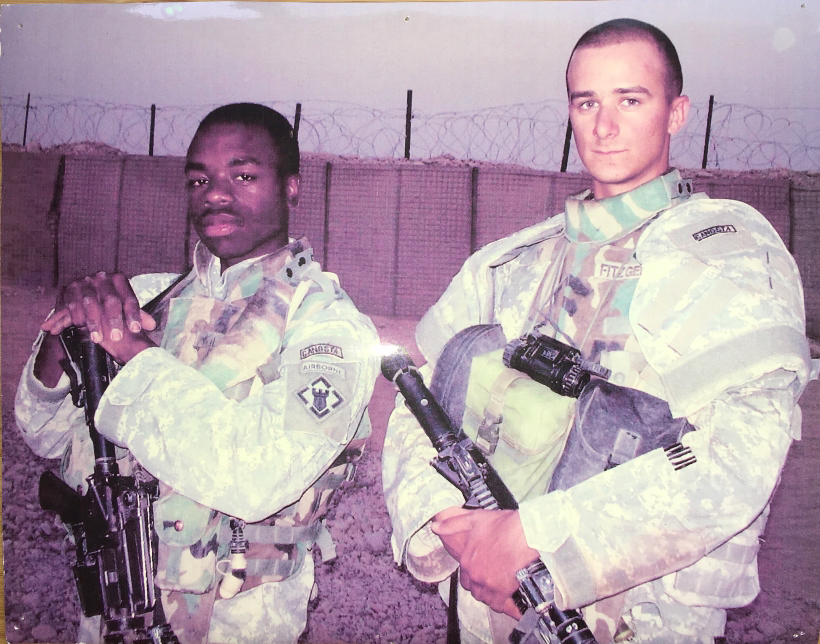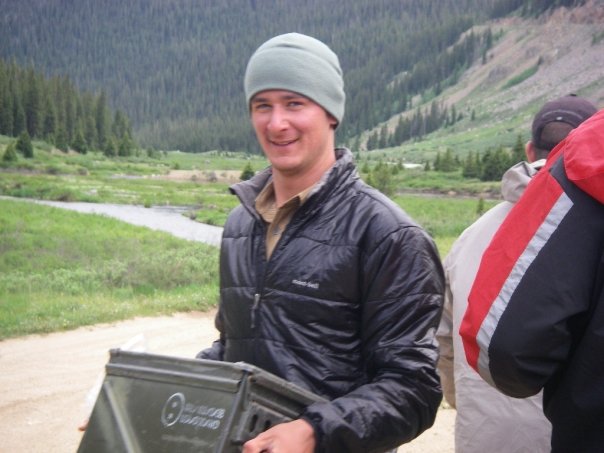My Educational Journey
I took an unorthodox path to becoming a statistics professor. I served active duty in the military, bummed around, returned later to community college as a first generation college student, transferred to university, started a family, worked in industry data science, and then returned to school for my PhD.
I grew up in a small rural town in Northern California. In high school I worked on a ranch, mostly digging holes. By the end of high school I was tired of school, and ready to see the world. I didn’t expect to ever go to college, and I wanted to be independent of my parents, so I enlisted in the Army.

In the Army I chose the military occupation specialty (MOS) of “heavy construction equipment operator” so that I could have an actual job skill when I got out. I volunteered for Airborne school and became a Maroon Beret in a combat unit at Fort Bragg, NC, and then Afghanistan. When I wasn’t deployed I did some general education night classes in Fayetteville; the command was very supportive of me going to school. In retrospect, I wish I would have tried out for Special Forces, because I wonder if I could have done it. I didn’t care much for life in the Army, and there was no way I was going to reenlist so I could pursue Special Forces. I was itching to be free.

I got out and spent some time rock climbing, bumming around, and working for Outward Bound Wilderness. How I miss those carefree days! A salty old Vietnam veteran I worked with named Bob O’Rourke advised me to go to school. Indeed, the new Post 9/11 GI bill education benefits looked pretty sweet. I would earn significantly more money going to school than I did in the Army, or than I could have made from working, so I went back to my hometown community college, since that was the only school that would have me.
I realized that community college was super cheap, because tuition was minimal and I could live with family, so I didn’t draw my GI bill at community college. This turned out to be a very good financial decision. Think about it, veterans. You have 36 months of GI Bill benefits. Do you want to use them on community college that’s practically free, or on graduate school that costs an arm and a leg?
Most veterans experience some bumps as they adjust to student life, or any normal civilian life after military service, particularly after a combat deployment. I was no exception. I went through a period when I didn’t want to acknowledge the influence of the military experience in my life at all. Eventually I accepted it and realized that my experiences were rare compared to many of my student peers, and that I could leverage them in many useful ways. For example, I used my experience to land the job at Outward Bound, and mentioned them in college application essays as positive learning and growing experiences.
I started out studying engineering, but then switched to math because I appreciated the beauty and generality. After taking all the math classes at my community college, I transferred to UC Berkeley as a math major, where I struggled. The upper division classes were so difficult! I wanted to quit math and choose an easier major, but I couldn’t because I had too many units. My last semester I took STAT 133, “An Introduction to Computational Data Analysis” with Professor Deborah Nolan. This was a fun class, just to fill my schedule up, and I fell in love with the subject. (BTW- You can take a similar class at Sac State, STAT 128) By the time I graduated I doubted that I would do more math, so I sold all my math books, and went to work for Cisco Systems in San Jose.
At Cisco’s business intelligence department I had this feeling of limitless possibility as I learned about the vast data repositories across the enterprise. Cisco provided me the incredible opportunity to learn Python from Raymond Hettinger. I found myself working through the Elements of Statistical Learning in my spare time. I realized that my lack of statistics knowledge was holding me back from really understanding this data, so I applied to graduate school at UC Davis.
I wanted to work specifically on data science applications with Professor Duncan Temple Lang. I believe this specificity and purpose made my application for graduate school more appealing. Graduate school was a long road, more than five years. Somewhere in the middle I contacted Professor Michelle Norris, and she led me to Sac State, where I am now happily employed.